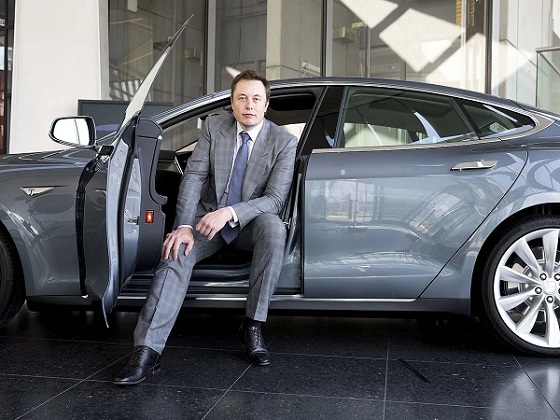Opinion
How Christianity Remade the World

Tom Holland joins Bari Weiss on Honestly (The Free Press)
Interview courtesy of The Free Press
| By Bari Weiss |
This Christmas, one of our greatest living historians explains how one ‘radical message’ came to define the entirety of the Western world.
Is our vacation from religion coming to an end?
Whether you believe in the story of the virgin birth and resurrection, or you believe that those miracles are myths, one thing is beyond dispute: The story of Jesus and the message of Christianity is among the stickiest ideas the world has ever seen.
Within four centuries of Jesus’s death, Christianity had become the official religion of the Roman Empire. It had 30 million followers—which amounted to half the empire. Today, two millennia later, Christianity is still the largest religion in the world, with more than 2 billion adherents.
How did the radical message of Christianity catch on? How did it change the world? And how does it shape all our lives today?
These questions motivate the latest episode of Honestly. My guest is the incredible historian Tom Holland, one of the most gifted storytellers in the world. His podcast, The Rest Is History, is among the most popular out there. Each week, he and his co-host, Dominic Sandbrook, charm their way through history’s most interesting characters and sagas. I can’t recommend it more highly.
I also recommend Tom’s book Dominion: How the Christian Revolution Remade the World. In it, he argues that Christianity is the reason we have America, that it was the inspiration behind our revolution. He also argues that Christianity is the backbone of both “wokeness,” as an ideology, and liberalism, which so often sees itself as secular.
In today’s episode, Tom discusses all this and more, including a question that a lot of my colleagues have thought about this year: Is our vacation from religion coming to an end?
Click below to listen to the podcast, or scroll down for an edited transcript of our conversation. Merry Christmas and happy holidays!
|
|
Tom Holland on How Christianity Remade the World
The Free Press Episode |
On the radical story of Jesus’s death:
Bari Weiss: Your book opens with the crucifixion. Your argument is that the turning point is not Jesus’s birth, but his death, at 33 years old, at the hands of the Roman authorities. Why is this the pivotal moment?
Tom Holland: It is very difficult to overemphasize how completely mad it was for everybody in the ancient world that someone who suffers crucifixion could in any way be the Messiah, let alone part of the one God. In the opinion of the Romans, crucifixion is the fate that should properly be visited on slaves. Not just because it is protracted and agonizing, but also because it is deeply humiliating.
When you die, you will hang there like a lump of meat. This is a demonstration, in the opinion of the Romans, that essentially their might is right. That if a slave rebels against his master, this is what happens.
I think what is radical about what Christians come to believe is not the fact that a man can become a god. Because for most people in the Mediterranean that is a given. What is radical is that the man Christians believe was divine was someone who had ended up suffering the worst fate imaginable—death by crucifixion—which, in the opinion of the Romans, was the fate visited on a slave.
The reason that Jesus suffers that fate is that he is part of a conquered people. He’s not even from Judea. He’s from Galilee. Galilee is not properly under the rule of the Romans. It’s franchised out to a client king. He is the lowest of the low. Even the Judeans look down on him.
The fact that such a person could conceivably be raised up by citizens of the Roman Empire as someone greater than Caesar himself, greater than Augustus, is a completely shocking maneuver. Judeans, Greeks, Romans—it’s shocking to them all.
The radical message of the crucifixion is that, in Christ’s own words, the last shall be first, and the first shall be last.
On the power relationship between the church and state:
BW: I’ve always been so interested in how Christianity goes from being the bane of the powerful to being the faith of the emperor. Constantine, the emperor who could have been a god, instead converts to the faith whose god died on a cross. How does that happen?
TH: Christianity spreads through most of the major cities of the empire. It’s not difficult to see what the appeal is. In a society without any hint of a welfare state, a state in which no value at all is put upon the weak or the poor or the sick, what the church offers is the first functioning welfare state.
If you are a widow or an orphan or in prison or hungry, the likelihood is that you will be able to find relief from the church. And that offers a kind of power because bishop literally means an overseer—the figure of a bishop who has charity to dispense. That’s quite something. You are in a position of authority that even your pagan neighbors might come to respect.
That’s the situation at the beginning of the fourth century, when Constantine is fighting a civil war. What Constantine wants is what Roman emperors for a century have wanted. Everyone in the empire knows that the prosperity of the empire is dependent on the favor of the gods. But there is a problem, which is that most cults are centered on particular temples, particular shrines, particular ways of offering up sacrifice or respect to a god.
Over the course of the third century, the Roman Empire goes through a terrible time—barbarian invasions, galloping inflation. So when Constantine comes to power, he is looking for a religion that can bind everyone within the empire. And this, basically, is what Christianity supplies him with.
What it also does is to suggest that there is a single celestial king in heaven. You can see it’s quite nice to imagine himself as the chosen one of God, because it suits his ego to have a single god for a single emperor.
But it has to be said that it takes Constantine and his heirs a while to realize what they’ve taken on—that the church is a kind of independent entity. And over the course of subsequent Christian history, what the relationship of the church should be to the authority and power of the great is one that is repeatedly being hammered out.
The traditions and ideologies of the Orthodox world and of the Western world are, I think, a consequence of the attempt to try and work out exactly what the balance should be between what you might call church and state.
On Christianity’s many paradoxes:
BW: To join a community not based on the lineage of your family or where you are born, but based on a belief—that still feels so radical to me, even in 2024.
TH: To the Romans, it’s bewildering. They are very puzzled. Who do the Christians think they are? They don’t have a land. They don’t have a mother city. Because they claim a universal identity, to the Romans, it seems they have no identity at all. This is a tension that runs throughout Christianity.
The paradox is the great motor of the Christian story and of Christian history. The idea that a man can be a god, the idea that someone who is dead can come to life, the idea that someone who suffers the death of a slave can be greater than Caesar: These are all paradoxes. And over the course of the 2,000 years of Christianity’s history, it’s unsurprising that these ideas have, in turn, generated further paradoxes, of which I would say—and this is pointed out by people hostile to Christianity—that for a people who claim to have a universal identity, Christians are very fond of fighting one another and denying the name of Christian to one another.
Christianity is a faith that is founded on the conviction that a crucified criminal suffering the death of a slave triumphs over the greatest empire on the face of the planet. That conviction has led to it becoming the most hegemonic explanation for who humans are—what their purpose on the face of the earth is, and where they will go after death—that has ever existed. And that gives it an unbelievable degree of power, and has given kings and emperors and popes power.
That is the supreme paradox of Christian history, a faith that became powerful by virtue of enshrining as its symbol someone utterly powerless. It’s incredible.
On the influence of Christianity on revolutions and modern political movements like wokeness:
BW: One of the things that Dominion does so powerfully is it shows the ways in which things we take for granted were actually Christian ideas. Some are obvious: the ideas of charity or forgiveness or redemption. But you connect even the American Revolution, the French Revolution to Christianity. You talk about how the impulses behind wokeness are fundamentally Christian.
TH: Christianity is inherently subversive of the established order that it’s born into. The Reformation of the eleventh century is followed by the Reformation of the sixteenth century, and that Reformation in turn is followed by the Enlightenment, revolutions, and the great cultural, ethical, moral convulsions that we’re going through at the moment.
You can distinguish certain abiding themes. One of them is the idea that the last shall be first—it’s the humbling of the papacy itself in the sixteenth century. It’s the overthrow of kings and emperors and czars in the American, the French, the Russian Revolution. It’s the toppling of statues in contemporary America, the idea that there is almost an inherent virtue within victimhood. To be oppressed is a source of power. It’s a very radical idea that Christianity weaponizes and has weaponized again and again and again.
I would go so far as to say that there are very few aspects of the culture wars that are being fought in America at the moment that do not ultimately have their origins in Christian theology. Like the trans issue. On one level, you would say that the idea that a man can become a woman or woman become a man, is radically opposed to Christian teaching. God creates man and woman separately in Genesis, and there really is no kind of sanction for thinking anything else. But at the same time, the case for trans rights as pushed by those who campaign for them is invariably done in very Christian terms. Trans people are defined as the last. And that seems to impose a kind of instinctive assumption that the last should become the first.
Martin Luther King Jr. described himself as an extremist for Jesus. His language, his speeches, his activism was saturated in biblical imagery. And essentially what he was doing was reminding Americans that if there is no Greek or Jew in Christ, then obviously there is no black or white. And he was summoning white American Christians to a reminder of their shared inheritance.
But over the course of the 1960s, there were other people, other groups of people who historically were disadvantaged, who drew on that lesson—whether feminists or gay-rights campaigners. You have a splintering between those who remain doctrinally Christian and those who are drawing on that Christian inheritance, but feel that they are opposing Christian doctrine and therefore increasingly become hostile to Christianity itself. The fact is they are indebted to the Christian inheritance. But because they have cut themselves off from the Scripture, the theology, the liturgy, and the patterns of behavior that had always defined Christians, they are kind of drifting off in all kinds of radical new ways.
But I think that there is one major theological maneuver that happens over the course of the ’60s, which is that sense that the Latin Christian doctrine of original sin is something to be profoundly rejected. The notion that human beings are born good and that they’re kind of corrupted by capitalism or whatever is very, very powerful in the ’60s. And so it seems liberating and progressive to get rid of the idea that we’re all born as sinners.
The problem with that is that if you get rid of the doctrine of original sin, then what you bake in is that it’s within our own capabilities to be good, to be a good person, and therefore you might persuade yourself that you are free of sin. By abolishing the concept of original sin, it encourages progressives to sit, in a more self-confident way, in moral judgment of those they oppose, than they might otherwise have done.
On why Tom returned to Christianity:
BW: You became secular as a teen and then you returned to Christianity. What brought you back to it?
TH: I exist in the kind of shadowlands between belief and agnosticism. And what brought me back from being an atheist apostate was that I found it boring ultimately. I found the process of reading the great Christian thinkers, reflecting on the patterns of Christian history, and recognizing that this is where I came from—they kind of gelled with me in a way that nothing else would.
There are times where I might be out in the wilderness and I have a sense of the closeness of animals and water and the sky. And I can imagine what it must have been like to exist in the Neolithic era. But I can’t go back to that, obviously. But I can go back to Christianity, because that’s the faith in which I was raised. And I think because of that, I am more open, perhaps, to its beauties as well as to its cruelties.
I feel that in trying to make sense of it, I’m trying to make sense of myself and the kind of conflicted nature that I sense exists within me and within the society that I live in. Ultimately, it makes my life more interesting to be a part of that, to share in that and to contemplate the possibility that it might be true.
BW: What does Christmas mean to you?
TH: The times of the year where I feel most Christian and I feel that I can believe most easily are Christmas and Easter, because these are the two great festivals of the Church. I respond to the inherent beauty and drama of the story. To live in England in December is to live in darkness a lot of the time, and so the idea of light in the darkness is very vivid for me.

2025 Federal Election
Highly touted policies the Liberal government didn’t actually implement

From The Audit
State capacity is the measure of a government’s ability to get stuff done that benefits its population. There are many ways to quantify state capacity, including GDP per capita spent on health, education, and infrastructure versus outcomes; the tax-to-GDP ratio; judicial independence; enforcement of contracts; and crime rates.
But a government’s ability to actually implement its own policies has got to rank pretty high here, too. All the best intentions are worthless if, as I wrote in the context of the Liberal’s 2023 national action plan to end gender-based violence, your legislation just won’t work in the real world.
The Audit is a reader-supported publication.
To receive new posts and support my work, consider becoming a free or paid subscriber.
So I thought I’d take a look at some examples of federal legislation from the past ten years that passed through Parliament but, for one reason or another, failed to do its job. We may agree or disagree with goals driving the various initiatives, but government’s failure to get the work done over and over again speaks to a striking lack of state capacity.
The 2018 Cannabis Act (Bill C-45). C-45 legalized recreational cannabis in Canada, with a larger goal of regulating production, distribution, and consumption while reducing illegal markets and protecting public health. However, research has shown that illegal sales persisted post-legalization due to high legal prices and taxation. Studies have also shown continued use among children despite regulations. And there are troubling indicators about the overall impact on public health.
The 2021 Canadian Net-Zero Emissions Accountability Act (Bill C-12). The legislation aimed to ensure Canada achieves net-zero greenhouse gas emissions by 2050 by setting five-year targets and requiring emissions reduction plans. However, critics argue it lacks enforceable mechanisms to guarantee results. A much-delayed progress report highlighted a lack of action and actual emissions reductions lagging far behind projections.
The First Nations Clean Water Act (Bill C-61) was introduced in late 2024 but, as of the recent dissolution of Parliament, not yet passed. This should be seen in the context of the Safe Drinking Water for First Nations Act (2013), which was repealed in 2021 after failing to deliver promised improvements in water quality due to inadequate funding and enforcement. The new bill aimed to address these shortcomings, but a decade and a half of inaction speaks to a special level of public impotence.
The 2019 Impact Assessment Act (Bill C-69). Passed in 2019, this legislation reformed environmental assessment processes for major projects. Many argue it failed to achieve its dual goals of streamlining approvals while enhancing environmental protection. Industry groups claim it created regulatory uncertainty (to put it mildly), while environmental groups argue it hasn’t adequately protected ecosystems. No one seems happy with this one.
The 2019 Firearms Act (Bill C-71). Parts of this firearms legislation were delayed in implementation, particularly the point-of-sale record keeping requirements for non-restricted firearms. Some provisions weren’t fully implemented until years after passage.
The 2013 First Nations Financial Transparency Act. – This legislation, while technically implemented, was not fully enforced after 2015 when the Liberal government stopped penalizing First Nations that didn’t comply with its financial disclosure requirements.
The 2019 National Housing Strategy Act. From the historical perspective of six years of hindsight, the law has manifestly failed to meaningfully address Canada’s housing affordability crisis. Housing prices and homelessness have continued their rise in major urban centers.
The 2019 Indigenous Languages Act (Bill C-91). Many Indigenous advocates have argued the funding and mechanisms have been insufficient to achieve its goal of revitalizing endangered Indigenous languages.
The 2007 Public Servants Disclosure Protection Act (PSDPA). Designed to protect whistleblowers within the federal public service, the PSDPA has been criticized for its ineffectiveness. During its first three years, the Office of the Public Sector Integrity Commissioner (OPSIC) astonishingly reported no findings of wrongdoing or reprisal, despite numerous submissions. A 2017 review by the Standing Committee on Government Operations and Estimates recommended significant reforms, but there’s been no visible progress.
There were, of course, many bills from the past ten years that were fully implemented.¹ But the failure rate is high enough that I’d argue it should be taken into account when measuring our state capacity.
Still, as a friend once noted, there’s a silver lining to all this: the one thing more frightening than an inefficient and ineffective government is an efficient and effective government. So there’s that.
The fact that we’re still living through the tail end of a massive bout of inflation provides clear testimony that Bill C-13 (COVID-19 Emergency Response Act) had an impact.
For the full experience, upgrade your subscription.
Courageous Discourse
Europe Had 127,350 Cases of Measles in 2024

 By Peter A. McCullough, MD, MPH
By Peter A. McCullough, MD, MPH
US Mainstream Media Maintains Myopic Focus on Less than 1000 Cases
As the measles story in the US continues to unfold with reporting of a few cases here and there come in through mainstream media, I wondered about measles in Europe.
The WHO casually reported that the Europe Region had 127,350 cases in 2024.
According to an analysis by WHO and the United Nations Children’s Fund (UNICEF), 127 350 measles cases were reported in the European Region for 2024, double the number of cases reported for 2023 and the highest number since 1997.
Children under 5 accounted for more than 40% of reported cases in the Region – comprising 53 countries in Europe and central Asia. More than half of the reported cases required hospitalization. A total of 38 deaths have been reported, based on preliminary data received as of 6 March 2025.
Measles cases in the Region have generally been declining since 1997, when some 216 000 were reported, reaching a low of 4440 cases in 2016. However, a resurgence was seen in 2018 and 2019 – with 89 000 and 106 000 cases reported for the 2 years respectively. Following a backsliding in immunization coverage during the COVID-19 pandemic, cases rose significantly again in 2023 and 2024. Vaccination rates in many countries are yet to return to pre-pandemic levels, increasing the risk of outbreaks.
Many regions in Europe have lower rates of measles vaccination than the goal of 95%.
Less than 80% of eligible children in Bosnia and Herzegovina, Montenegro, North Macedonia and Romania were vaccinated with MCV1 in 2023 – far below the 95% coverage rate required to retain herd immunity. In both Bosnia and Herzegovina and Montenegro the coverage rate for MCV1 has remained below 70% and 50% respectively for the past 5 or more years. Romania reported the highest number of cases in the Region for 2024, with 30 692 cases, followed by Kazakhstan with 28 147 cases.
The WHO Report does not mention adjudication of hospitalizations or deaths. Presumably hospitalization of healthy kids is routine for contagion control. So if measles is so common and presumably well-handled by Europe, why is it such a big deal in the United States? Don’t look for Sanjay Gupta or Anderson Cooper to tell you that a similar size region and population handles >100K cases per year without much fanfare.
Peter A. McCullough, MD, MPH
President, McCullough Foundation
FOCAL POINTS (Courageous Discourse) is a reader-supported publication.
To receive new posts and support my work, consider becoming a free or paid subscriber.
Please subscribe to FOCAL POINTS as a paying ($5 monthly) or founder member so we can continue to bring you the truth.
Subscribe to FOCAL POINTS (Courageous Discourse).
For the full experience, upgrade your subscription.
-

 International2 days ago
International2 days agoTrump’s ‘Golden Dome’ defense shield must be built now, Lt. Gen. warns
-

 Alberta2 days ago
Alberta2 days agoOwner sells gas for 80 cents per litre to show Albertans how low prices ‘could’ be
-

 2025 Federal Election1 day ago
2025 Federal Election1 day agoMORE OF THE SAME: Mark Carney Admits He Will Not Repeal the Liberal’s Bill C-69 – The ‘No Pipelines’ Bill
-

 Break The Needle1 day ago
Break The Needle1 day agoWhy psychedelic therapy is stuck in the waiting room
-

 Automotive1 day ago
Automotive1 day agoTrump Must Act to Halt the Tesla Terror Campaign
-

 2025 Federal Election1 day ago
2025 Federal Election1 day agoThree cheers for Poilievre’s alcohol tax cut
-

 Alberta2 days ago
Alberta2 days agoThe beauty of economic corridors: Inside Alberta’s work to link products with new markets
-

 Opinion2 days ago
Opinion2 days agoSome scientists advocate creating human bodies for ‘spare parts.’









